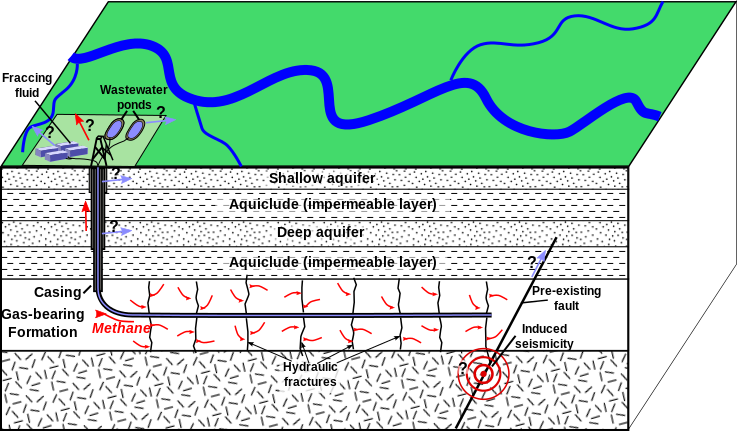
Graphic courtesy Mike Norton/Creative Commons
By John Carmichael
Just over a year ago, we felt at least one of the earthquakes occurring near Jones, Oklahoma at my house. I’ve lived in Wichita for over 50 years, and had never felt an earthquake here. Just a few weeks ago, another quake occurred near Caldwell, Kansas. Some suggest that horizontal drilling and hydraulic fracturing (”fracking”) may be related to these events.
On January 21, the Kansas Corporation Commission (KCC) appeared before the House Energy and Environment Committee to answer questions about the possible environmental hazards caused by fracking and the accompanying disposal of waste fluids. A representative from the Kansas Geological Survey (KGS) also appeared and addressed the risk of earthquakes in Kansas. He stated that while the risk of a major earthquake in Kansas is slight, Kansas is not immune to tremors. Over a span of 12 years, more than 200 small scale earthquakes were recorded in Kansas and Nebraska.
In matters of science, it is important not to jump to unfounded conclusions. The leading peer‑reviewed study regarding fracking and earthquakes was published by the National Academy of Sciences in October of 2012. The study concludes the preponderance of evidence fails to presently establish a link between fracking and seismic events.
While many of the study’s conclusions are controversial and hotly debated, my questions in committee to representatives of KGS established that all sides agree better monitoring of seismic events leads to better data and will assist in reaching scientifically valid conclusions regarding a relationship between fracking and underground disposal and seismic events.
No matter where you stand on the fracking debate, valid conclusions require valid data. Protection of life, property and the environment requires Kansas to make the investments necessary to properly monitor oil and gas production.
